Meat must be washed since it contains hazardous bacteria and toxic elements that may not be removed even after washing. The only way to cook properly is to sterilize. While cleaning the meat before cooking will not remove bacterial passengers, it will remove physical detritus. Place the meat in a sink or other area that will not be utilized for other food preparation. Dishes that will not be utilised in the procedure should not be close to or around the cooked meat.
Meat - Rhima Australia
Meat service and processing businesses must ensure that meat processing instruments and handling equipment are sanitary. They should also have been heated, cleaned with chemicals, or given other procedures. By doing so, the number of germs on surfaces or utensils is reduced to the point where the quality and safety of the items with which they may come into contact is not jeopardized. It also eliminates the risk of disease transmission.
Cleaning and maintenance to current regulatory standards are critical for inspection purposes and the safety and viability of a meat service business. It could be because people are becoming more aware of meat industry standards and the activities required to provide sanitary and nutritious meat products.
Meat processing firm owners must adhere to strict meat manufacturing safety regulations. Industrial and commercial dishwashers allow the meat industry to ensure that everything is cleaned and sanitized according to meat safety and health regulations.
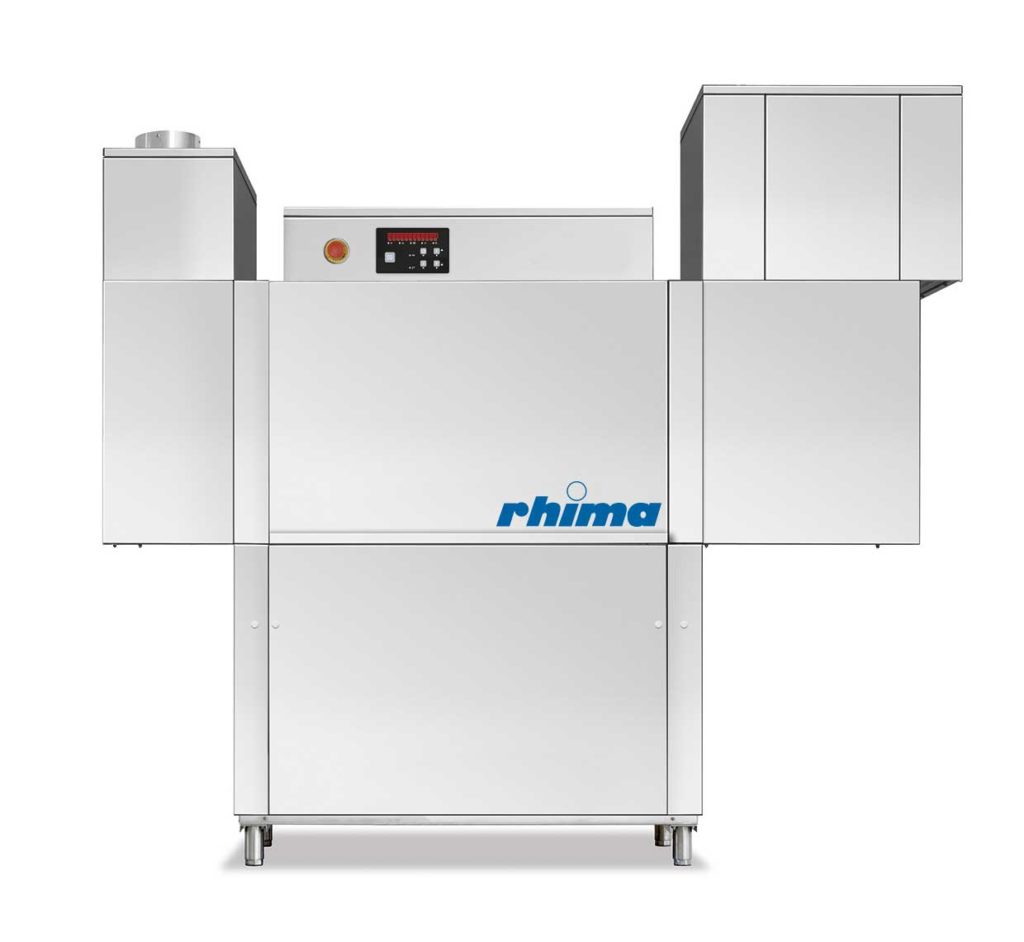
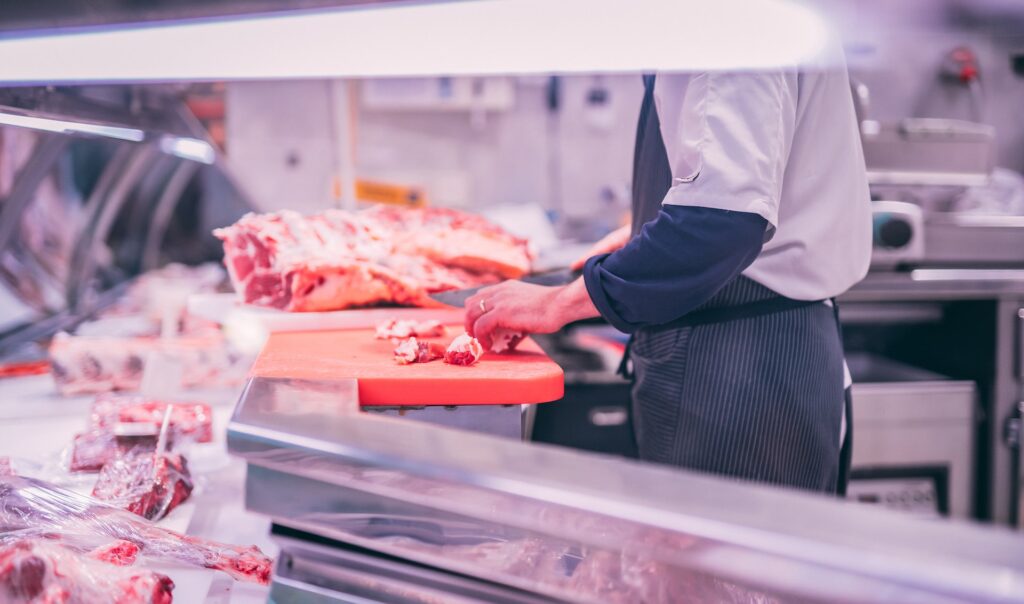
Why Does the Meat Industry Need a Dishwasher?
It is usual to find bone fragments, sawdust, or other butchery residues on meat after being wrapped and carried home in foreign markets where meat is butchered and hung to dry or sliced with bone saws. If the meat was left out in the open, it was likely exposed to flies and other insects. It is in addition to any blood or debris that may have been on to the meat during delivery.
One of the most obvious benefits of investing in an industrial dishwasher is its efficiency in terms of speed: a cleaning cycle normally lasts one to four minutes. Other substantial benefits will be evident if you decide to purchase an industrial washer, which will impact your business and how customers and clients see your food processing facility. They can also wash many food processing instruments and products in a short amount of time.
It’s no longer necessary to wait for clean containers, mixers, or other food-processing equipment. In addition, compared to hand washing, they can clean many more items in each wash cycle. This relieves your employees of a time-consuming task and allows them to focus on their other duties.
How Can Rhima Help Your Meat Business With the Best Washing Solutions?
Rhima has created a one-of-a-kind monitoring program that considers safety, hygiene, and operational factors. Once properly configured, your system will follow HACCP requirements.
The HACCP standard emphasizes the need for hygiene and sanitation in its implementation. Prioritizing hygiene and encouraging sanitation to avoid foodborne illness is known as sanitation. When it comes to food safety, it’s a must-have program. Sanitation management refers to the policies, strategies, and methods used to ensure that the facilities are kept clean enough to limit or eradicate external viruses, biological hazards from staff handling, and meat allergy risks.
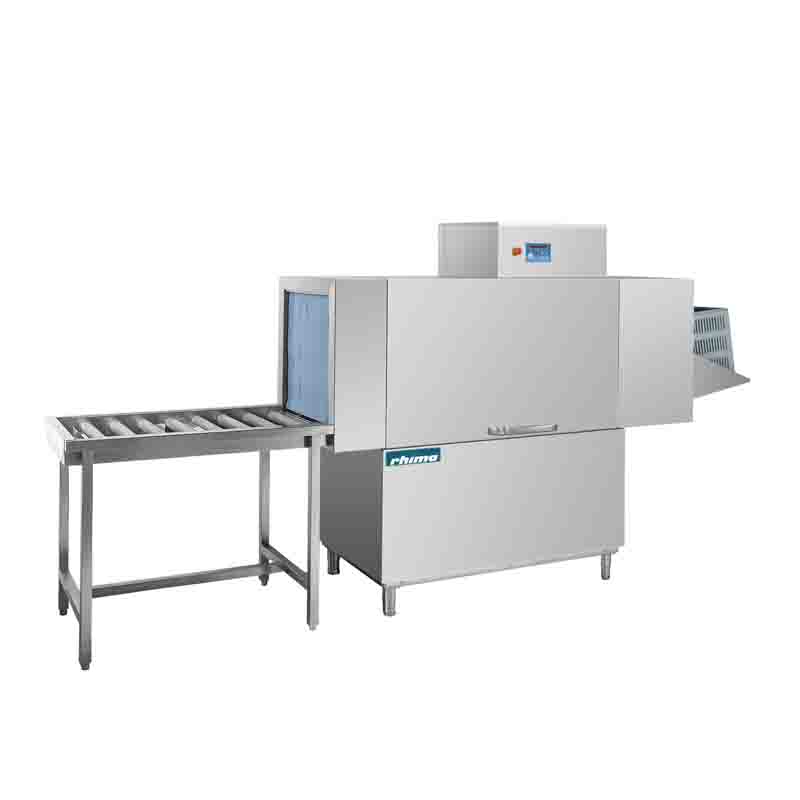
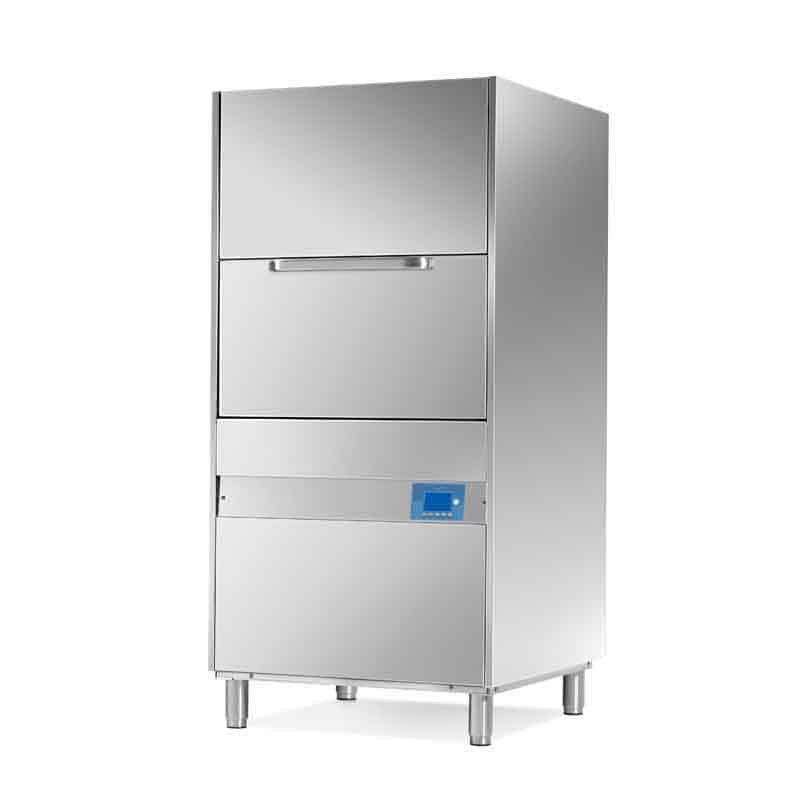
Rhima Industrial Dishwashers for Your Meat Washing Solution
Foodborne disease-causing microorganisms can be detected on a variety of processed meats. Employees, machines, apparatus, and industrial water are only some things that might infect beef products with bacteria. Dishwashers in commercial establishments, such as Rhima, make life much easier, healthier, and more secure.
Given the increased concern over cross-contamination in different meat items from meat processing facilities, you will undoubtedly obtain the peace of mind you require. Eating meat from meat processing plants can be a lot safer because of the low unit prices, cost-effective processes, and hygienic products produced by Rhima’s commercial dishwashers.
Rhima RP-3 Pot and Utensil Washer: A Partner for the Meat Industry
Thanks to the twin-pump design, the RP-3 pot and utensil washer is a seriously powerful general-purpose washer. It could be the ideal machine for your meat processing business, providing comprehensive meat cleaning solutions. It may be adapted to wash a wide range of equipment in commercial and industrial settings, just as the RP-2.
With RP-3, you’ll have:
- Built-in booster heater and thermostop which ensures a HACCP compliant 82°C fresh water final rinse
- Five cycles pre-set to 120, 240, 360, 480 & 600 seconds each. They are fully programmable with a self-cleaning cycle.
- A Deep-formed tank eliminates pump cavitation.
- Double skinned, which means that fewer heat escapes and the machine is not hot to touch
- Independent stainless-steel wash & rinse arms.
- Double tank filter with a waste collection system
- Energy-saving as the machine reduces power when in standby mode.
- The multichromatic start key clearly shows the working temperatures and the washing cycles in different colors to be visible to users.
- A self-diagnostic system that notifies if there are any anomalies
- The internal corners of the double-skinned tank are rounded for easy cleaning.
- Like all our products constructed entirely in stainless steel 304 with necessary items like tanks in 316.
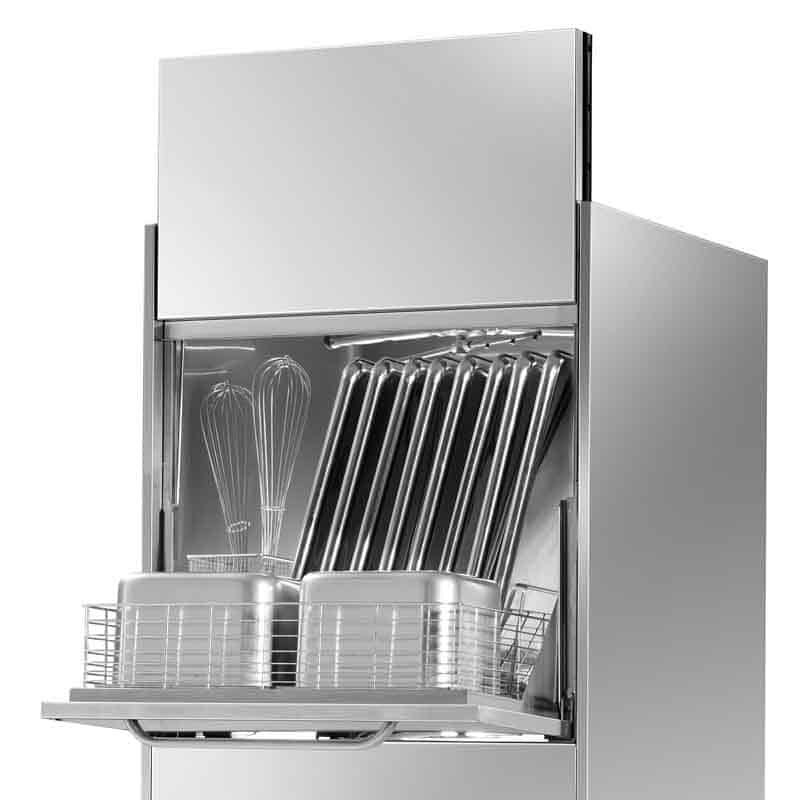
Rhima Maintenance Packages: The Service Support you Need
Preventative maintenance and HACCP testing on Rhima equipment are performed by Rhima technicians who have received intensive training. Rhima will service and maintain your industrial dishwasher at its peak performance level for your peace of mind, decreasing the possibility of costly service.
Benefits of Rhima preventative maintenance are:
- Savings on electricity costs
- Savings on total maintenance costs
- Water savings
- Lower detergent usage
- Prolongs the life span of the equipment
- Insurance against unexpected major repairs
- Elimination of unplanned costs and stoppages
-
How do you clean meat?
-
Is hydrogen peroxide safe for food-contact surfaces?
Hydrogen peroxide (H2O2) is a colourless, odourless liquid with a clear appearance. It’s a mixture of hydrogen and oxygen that comes in various intensities (indicated by the percentage of dilution with water). A dilution of hydrogen peroxide has 35% H2O2 and 65% water. Food processors employ 35 percent H2O2 for various functions, including cheese manufacturing and wheat flour bleaching. Microorganisms in food packaging materials are also killed using it.
Because it lacks key stabilizers, this 35 percent dilution is referred to as “food grade.” Food-grade hydrogen peroxide is safe to use on food products in small volumes. However, if you inhale or ingest it, or if it comes into touch with your skin or eyes, it can be dangerous.
-
What is the difference between Sanitizing and Disinfecting?
Both were sanitizing and disinfecting, which refer to a higher-level cleaning. Although the terms sanitizing and disinfecting are sometimes used interchangeably, and both eliminate germs from any surface or object, there is a subtle but fundamental difference between the two.
Sanitizing is a mild process that destroys 99.9% of bacteria. On the other hand, disinfection is a touch harsh on germs, killing them up to 99.999 percent of the time. As a result of the Covid-19 outbreak, sanitization has become quite widespread in practically all offices and homes to preserve adequate hygiene. For significant messes, disinfecting is done in hospitals and labs. The sanitizing and disinfection liquids are different.
